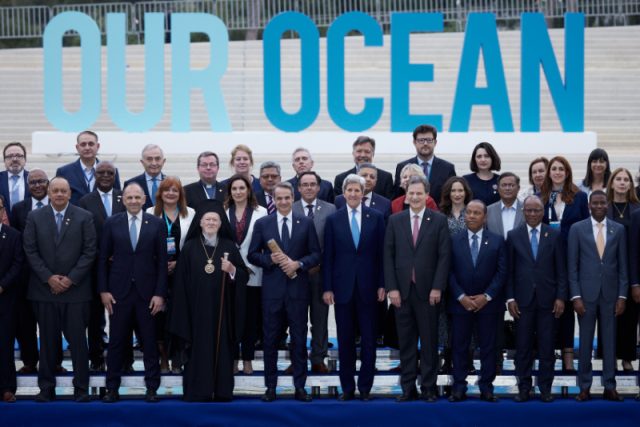Signaling – messaging – guessing
The way in which the Iranian attack to Israel, the international system’s (especially so the US) exhortations to the latter to keep quite a measure of restraint in its forewarned counter-attack, the subsequent Israeli rather controlled strike (along with Iranian official played-down impact of such strike) show that a carefully orchestrated global game is underway in the Middle East. This most combustible area where the vicious Hamas attack of October 7th caused a seemingly never-ending IDF land campaign in Gaza with casualties close to the 35,000 mark does not seem to be sliding to all-out war; major actors – meaning the US – see to that.
The way in which this balancing act was achieved has much to do with signaling and messaging, official declarations, media leaks, think-tank projections but also visibly calibrated launches of missiles and glide bombs as well as drone flights from all parties to the evolving conflict saw to that. Still, quite a lot of guessing may well have been present in this step-by-step approach to – tentatively – write history in the making. (The contrast to the way the Ukraine situation has gotten out of hand is striking enough). Of course, the ongoing tit-for-tat is not over: the Israeli bombing of an Iran-backed militia base in Iraq and the consequent strike to an Israeli port do not signal “The end”. Parties keep second-guessing each other.
 Comparing such situations of global importance with – comparatively – parochial occurrences such as those in Greek-Turkish relations may seem overblown. Then again, were one to go over events of the very last weeks over the two sides of the Aegean, one would easily bump on some signaling and messaging. Just some days ago, Greek PM Kyriakos Mitsotakis used the opportunity offered by the Athens-held “Our Ocean” Conference to air plans for two large marine parks to span large areas in the Ionian and – more to the point – in “the Greek Galapagos” , just in the middle of the Aegean archipelagos from West of Milos and over to Nisyros. The planned parks would aim at conservation/environmental protection, although this move came just after projects of marine windfarms had been aired.
Comparing such situations of global importance with – comparatively – parochial occurrences such as those in Greek-Turkish relations may seem overblown. Then again, were one to go over events of the very last weeks over the two sides of the Aegean, one would easily bump on some signaling and messaging. Just some days ago, Greek PM Kyriakos Mitsotakis used the opportunity offered by the Athens-held “Our Ocean” Conference to air plans for two large marine parks to span large areas in the Ionian and – more to the point – in “the Greek Galapagos” , just in the middle of the Aegean archipelagos from West of Milos and over to Nisyros. The planned parks would aim at conservation/environmental protection, although this move came just after projects of marine windfarms had been aired.
If this was a form of soft signaling, the message that came back from the other side was quite harder. The Turkish Foreign Ministry accused Greece of “faits accomplis [created] on geographical features whose status is disputed”. Ankara went even further, signaling to Brussels/the EU: “we would advise third parties, including the EU, not to become a tool for Greece’s attempts”. Turkish Defense Ministry chimed in, saying it would “remain vigilant” and protect Turkey’s “rights and interests in the Aegean”. Athens signaled back, reaffirming the country’s “commitment to international law of the sea and environmental protection”, indicating the parks would proceed as planned.
All of which did not seem to derail plans for the meeting of Greek PM K. Mitsotakis with Turkish President R. Erdogan scheduled for May 13 (in Ankara), following their earlier meeting of December 7 (in Athens). Mitsotakis is reported saying “I am impressed by such a completely unjustified reaction of Turkey to an initiative which ultimately has an environ mental characteristic”. On his part, Erdogan said he considers the upcoming May meeting with Mitsotakis as “an important stage is [our] relationship.
As things stand, Erdogan would then be just back from his visit to the US and his meeting with President Biden (scheduled for May 9…): quite important a message, too. Unless the latest incident in Erdogan’s Middle East politics – welcoming Hamas leader Haniyeh in Istanbul – changes US views. (Then again, Turkey may well wish to substitute in the place of Qatar in mediating between Israel and Hamas – but this would be a global center-stage role).
Of far less lethal sort the signaling and messaging in our part of the Mediterranean and the Near East – but, still, signaling and messaging at work. With some guessing, too…






